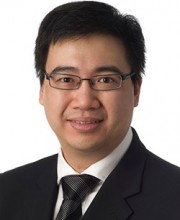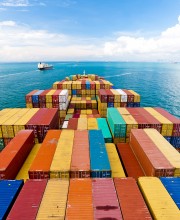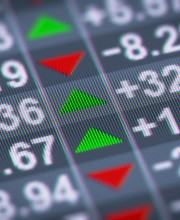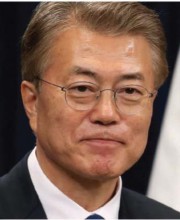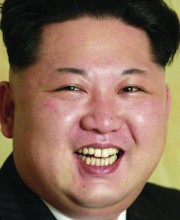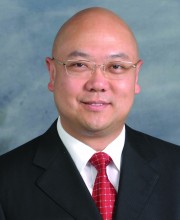Barry Pearton
Publisher
THE parlous state of the North Korean economy is hardly conducive to success in any open military confrontation with the United States. Kim Jong-Un’s most valuable bargaining chip would seem to be his country’s human and mineral resources . . .
OUR cover report from Korean correspondent, Peter Sylvestre (page 10), presents a grim picture of potential scenarios as the North Korean nuclear imbroglio rumbles relentlessly on, at times descending to the edge of farce. If only it was not so serious.
The mix is raw politics, the potential social and economic impact on neighbouring countries far-reaching.
In human terms, a bottom line of probably half-a-million people dead in Seoul on the first day of any military conflict, and widespread economic devastation in the immediate region. And even today, difficult times for North Korea’s own people.
There is clearly an unrelenting determination by Pyongyang’s Kim dynasty to perfect a nuclear deterrent – in its mind, the only viable option for survival.
Kim Jong-eun has wrong-footed both former U.S. President Obama and Chinese President Xi, but, after the recent bombings in Syria and Afghanistan, must be pondering the way forward with Donald Trump.
The U.S. military has spent more than 60 years peering into North Korea across the no-man’s land of Panmunjom, more closely observing from satellite and drone. Kim must realise that the U.S. knows exactly the scope of the threat he presents.
Trump has now offered to talk to Kim (a necessary first step, as Xi sees it). It is an invitation Kim has yet to accept, apparently fearing a loss of face if Trump changes his mind and does not front.
Xi, meanwhile, has not helped himself by sanctioning South Korean business in a failed bid to prevent installation of the US THAAD missile defence system on South Korean soil.
THAAD is up-and-running, even as South Korea’s chaebols look to their options for more trade and investment opportunities outside China’s orbit.
Beijing’s strategy in recent years has been to increase the reliance of the South Korean economy on China, while simultaneously squeezing the prices Taiwan could achieve for export products it manufactures in direct competition with South Korea.
At the APEC meeting it hosted in Beijing in 2014, China announced a free trade agreement which gave South Korea an immediate tariff advantage over Taiwan on exports to China. No matter that the FTA was not to be fully implemented for 20 years (something not announced at the time).
Taiwan and Korea compete directly on 80 per cent of their export products, mainly advanced electronics.
The China-Korea FTA was a calalyst in prompting Taiwan’s current Government to adopt a South-South policy — to divert trade, investment and economic dependence away from China. Will South Korea now follow suit?
For China, the geopolitical options in Northeast Asia have seemed to fade with every new missile test into either the Yellow Sea or the Sea of Japan.
A preferred option for China from a military and security standpoint has traditionally been to embrace North Korea as a client State. The implied political risk that such a move would enrage Japan to the point of re-arming clearly proved too great.

